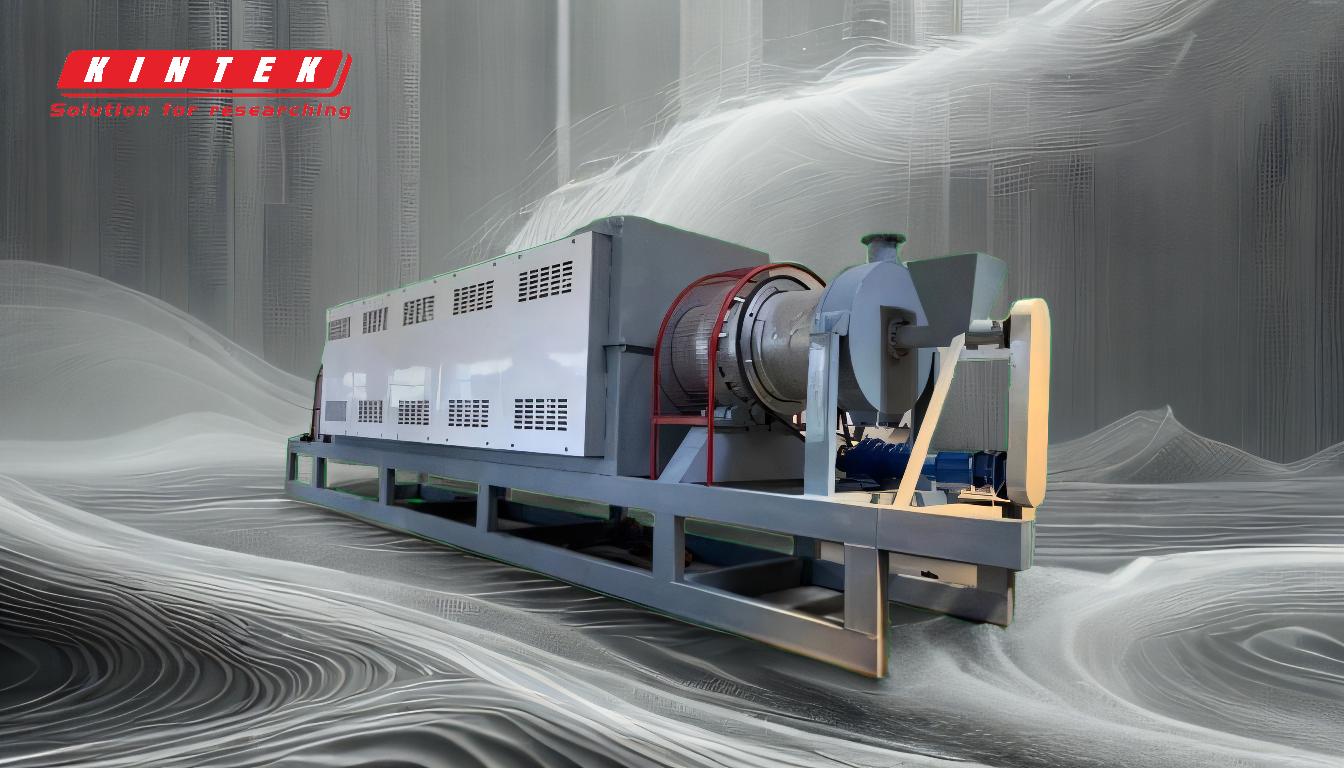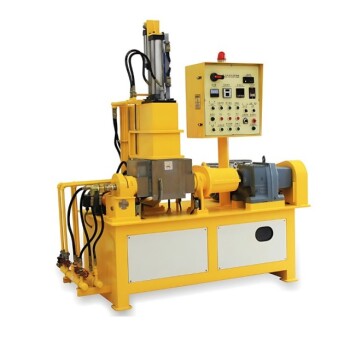At its core, tyre pyrolysis oil represents a significant advantage in waste management and energy production by converting a problematic waste stream into a usable industrial fuel. This process addresses the environmental burden of end-of-life tyres while recovering valuable energy and materials, contributing to a more circular economy.
The primary advantage of tyre pyrolysis is not the creation of a perfect fuel, but the transformation of a persistent environmental liability—scrap tyres—into valuable resources. It offers a practical solution for waste reduction and energy recovery, despite the resulting oil having distinct chemical properties that require specialized handling.
The Core Value: From Waste Stream to Resource
The most profound advantage of tyre pyrolysis oil is contextual. It stems from solving the massive global problem of what to do with millions of tons of scrap tyres generated each year.
A Solution to Tyre Waste Management
End-of-life tyres are a major environmental challenge. They are bulky, non-biodegradable, and can leach harmful chemicals into the soil and water when left in landfills or dumped illegally.
Pyrolysis offers a constructive method for processing this waste stream, breaking the tyres down in a high-temperature, oxygen-free environment rather than letting them accumulate.
Reducing Landfill and Environmental Burden
By converting tyres into oil, gas, and char, pyrolysis dramatically reduces the volume of waste sent to landfills. This mitigates the risk of landfill fires, which release toxic pollutants, and frees up valuable land.
Recovering Multiple Valuable Materials
The process doesn't just yield oil. It allows for the recovery of carbon black (a valuable industrial filler used in manufacturing new rubber and plastic products) and steel from the tyre's internal wiring. This creates multiple revenue streams and closes the loop on material usage.
Applications and Energy Generation
The resulting pyrolysis oil, often called Tyre-Derived Fuel Oil (TDFO), has several practical applications, primarily as a substitute for conventional heavy oils.
Direct Use as an Industrial Fuel
The most common application is as a fuel for industrial boilers, furnaces, cement kilns, and thermal power plants. It has a high calorific value, making it an effective and often lower-cost alternative to heavy furnace oil or petroleum coke.
A Source for Power Generation
The oil can be burned in large, specially adapted stationary diesel engines or turbines to generate electricity. This is particularly viable for powering the pyrolysis plant itself or for selling electricity to the local grid, especially in remote locations.
Understanding the Trade-offs and Challenges
To make an informed decision, you must understand that tyre pyrolysis oil is fundamentally different from refined petroleum products. Its advantages are paired with significant technical challenges.
It Is Not a Direct Diesel Replacement
You cannot simply put raw pyrolysis oil into a standard vehicle engine. The oil has a high oxygen content, is thermally unstable, and can be corrosive to standard fuel system components.
The Problem of Impurities and Instability
Pyrolysis oil is prone to polymerization, meaning it can thicken and form sludge when exposed to air or heat. It is also immiscible with conventional fossil fuels, preventing easy blending without specialized processes. This requires dedicated storage tanks and handling equipment.
The Need for Upgrading
To be used in more sensitive applications or as a transportation fuel, the oil must undergo significant secondary processing. This upgrading can involve steps like hydrotreating to remove sulfur and nitrogen, stabilizing the molecules, and making it more compatible with existing fuel infrastructure.
Making the Right Choice for Your Goal
Adopting tyre pyrolysis technology requires a clear understanding of your objective, as the "best" application depends entirely on your resources and goals.
- If your primary focus is environmental waste management: Pyrolysis is an excellent method for diverting tyres from landfills and recovering their intrinsic value.
- If your primary focus is industrial energy production: The raw oil is a viable, cost-effective substitute for heavy furnace oil, provided you invest in the appropriate storage and combustion systems.
- If your primary focus is creating high-grade transport fuel: Be prepared for significant capital investment in upgrading and refining technologies to convert the raw oil into a stable, clean-burning product.
Ultimately, tyre pyrolysis provides a powerful way to transform an environmental problem into a valuable energy asset.
Summary Table:
| Advantage | Key Benefit |
|---|---|
| Waste Management Solution | Diverts millions of scrap tyres from landfills, reducing environmental pollution. |
| Resource Recovery | Produces oil, carbon black, and steel, creating multiple revenue streams. |
| Industrial Fuel Source | High-calorific value fuel for boilers, furnaces, and power generation. |
| Circular Economy Contribution | Transforms a persistent waste problem into a valuable energy asset. |
Ready to transform your tyre waste into a valuable resource?
At KINTEK, we specialize in providing robust laboratory equipment and consumables to support the research, development, and quality control of pyrolysis processes. Whether you are developing new pyrolysis methods, analyzing fuel properties, or ensuring product quality, our precise and reliable equipment is designed to meet the demanding needs of the recycling and energy recovery industries.
Let KINTEK be your partner in innovation. Contact our experts today to discover how our solutions can enhance your pyrolysis projects and help you achieve your sustainability and energy goals.
Related Products
- Electric Rotary Kiln Continuous Working Small Rotary Furnace Heating Pyrolysis Plant
- Electric Rotary Kiln Small Rotary Furnace Biomass Pyrolysis Plant
- Laboratory High Pressure Horizontal Autoclave Steam Sterilizer for Lab Use
- Polygon Press Mold for Lab
- Square Lab Press Mold for Laboratory Applications
People Also Ask
- What is the use of oil sludge? Turn Hazardous Waste into Energy & Construction Materials
- What are the raw materials for biochar production? Choose the Right Feedstock for Your Goals
- What are the types of pyrolysis reactors used in industry? Choose the Right Technology for Your Product
- What are the zones in rotary kiln in cement production? Master the Core Process for High-Quality Clinker
- What are the different types of pyrolysis machines? Choose the Right System for Your Output






